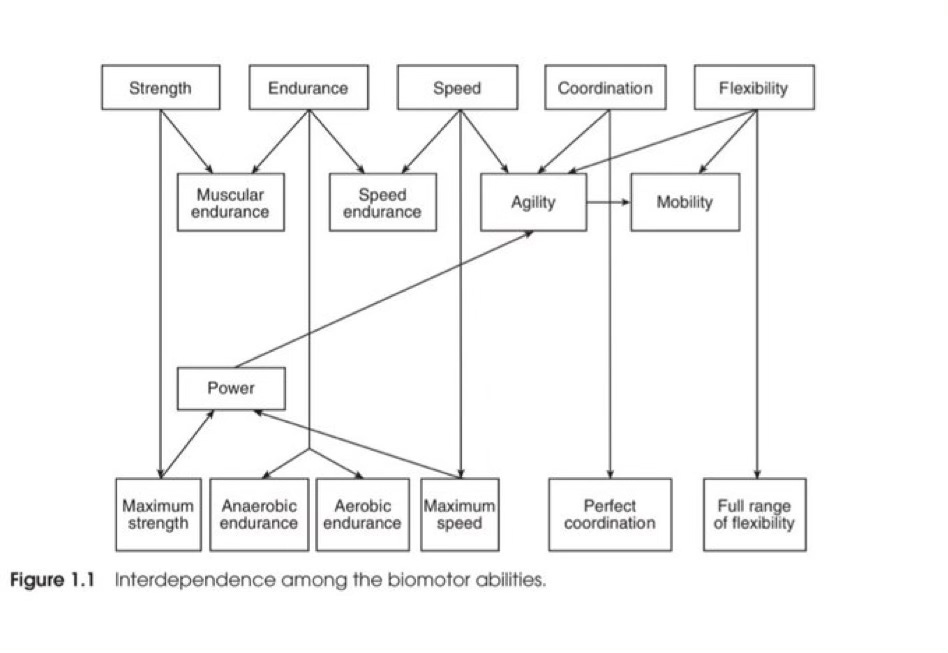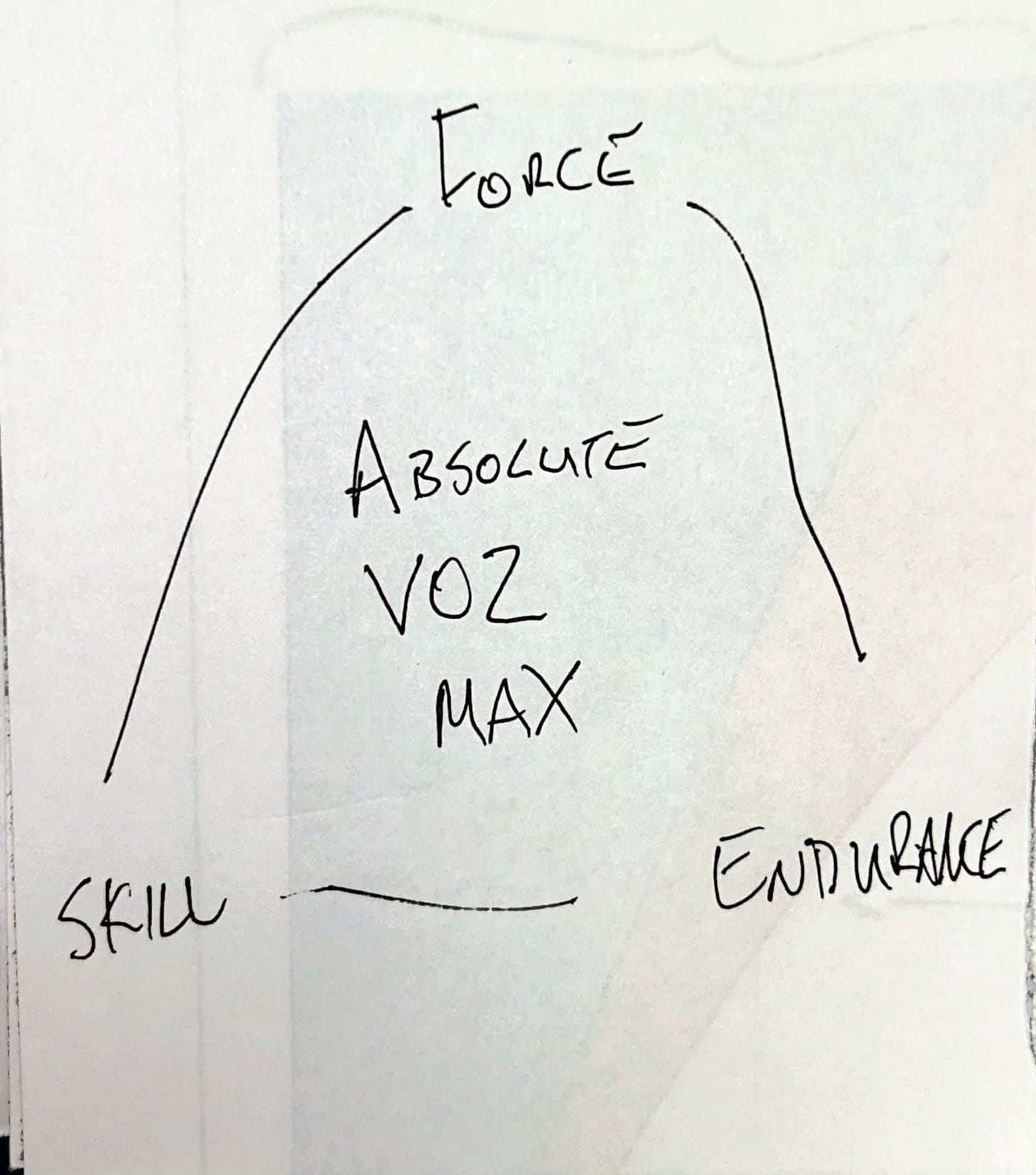The Physics of Performance - Part One
Defining Terms & Block Periodization
The idea for this series came during a VO2 Max block. I was riding easy and thinking through the main components required to increase my absolute VO2 Max. I drew the picture above, which was taught to me by Joe Friel and introduced in Chapter One.
Force
Skill
Endurance
Further, we can combine the qualities:
Force + Skill = Speed
Force + Endurance = Muscular Endurance
Skill + Endurance = Economy
Some of these attributes go by different names in different sports, and different parts of the world.

As I was running through the attributes of performance, I asked myself…
What’s the #1 thing preventing me from increasing my absolute VO2 Max?
One of the fascinating things about human performance is we will never know for sure. However, by paying attention, we can rule out certain approaches and iterate towards better.
Perhaps better questions might have been,
Why might this session work?
If this session works then how will it contribute towards my goals?
What I hope this series brings you is a deeper understanding of endurance performance. With this understanding, you can better tailor your training to improve whatever you desire.
Make sure you know exactly what you want. Write down your goals and make sure your team is on board with your plan. Your team includes everyone in your life, both inside and outside sport. For more on this subject see my recent video below.
By the way, the punchline to my question, ‘Who’s In Charge’ is YOU. You are always in charge.
With respect to testing and targets, John and I wrote a two part series on Testing That Matters. I share my experience in Part One and John shares his experience in Part Two. As you’ll see across this series, John’s broadened my view son the usefulness of maximal testing.
As a competitive athlete, it’s important to remember that races are the ultimate test. Races are where all of the components of performance combine.
Other questions I hope the series helps you decipher:
Why does my training plan work?
Which aspects of my training plan most benefit my individual fitness?
Is there a type of training, done by many, that I’ve been avoiding?
But before we start, why was I doing a VO2 Max block in the first place?
If we think about training philosophy then there are themes1 we can bring to our plans.
Endurance and Strength - Build General Capacity
Race Specificity - Build Specific Capacity
VO2 Max - Increase The Size of Our Engines
These themes overlap and working on one aspect doesn’t necessarily mean another will decline. For example, many athletes will see their VO2 Max improve when they focus on Endurance and Strength.
However, for an endurance athlete, there is a cost to everything and we can’t optimize everything at once. For this reason, many coaches rotate the themes in what is called Block Periodization. See Footnote #1 for links to interviews with Dan Lorang explaining his use of block periodization in the context of elite triathlon.
Now that we are thinking in terms of periodization, I would add one more theme… rejuvenation and adaptation.
This leaves us with four choices for structuring our training2:
Endurance and Strength - Build General Capacity
Race Specificity - Build Specific Capacity
VO2 Max - Increase The Size of Our Engines
Rejuvenation - Enable Long Term Upward Performance Progression
Where many of us go wrong is trying to put 1, 2 and 3 into every block.
In some cases, we try to cram everything into one week then add mobility, sprinting, strength training and plyometrics on top. By using themes, and remembering the importance of rejuvenation, we can curb our enthusiasm and get better long term outcomes.
In Part Two, we will discuss VO2 Max Blocks.
Back to Table of Contents
If you want to hear these themes discussed by a master coach then listen to Dan Lorang.
Scientific Triathlon Episode 175 and Episode 417. Those are web links and include a transcript.
The Triathlon Hour Episode 52 and Episode 219. Those are Apple Podcast links.
Once you’ve heard Dan explain his thinking, go and listen to his elite athletes explain their interpretation of his method. Here’s Jack Kelly talking to Taylor Knibb, Spotify link.
For another take on block periodization, please read my article, A Swedish Approach to Athletic Excellence. Once you grasp the concepts of periodization, you will see them everywhere.


